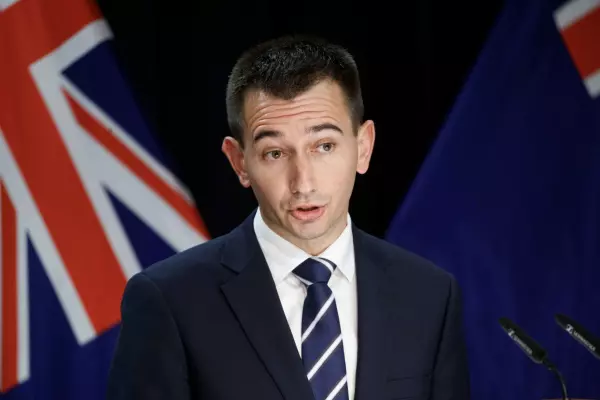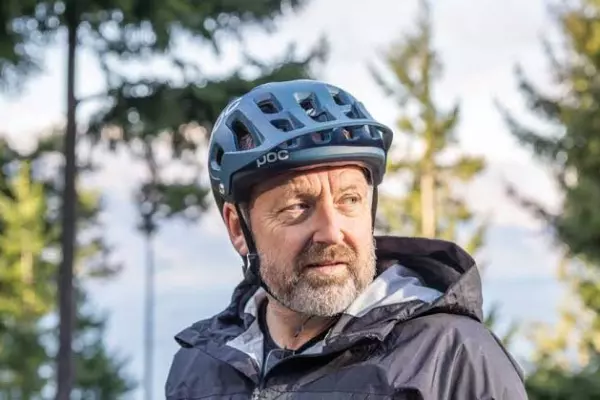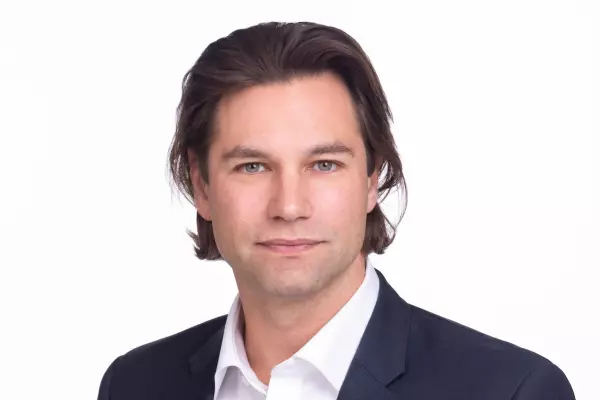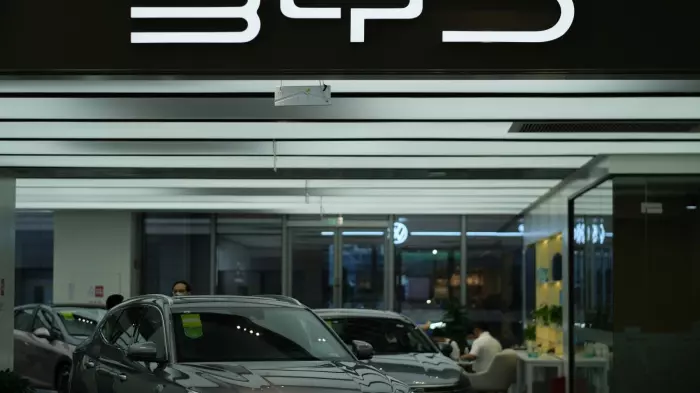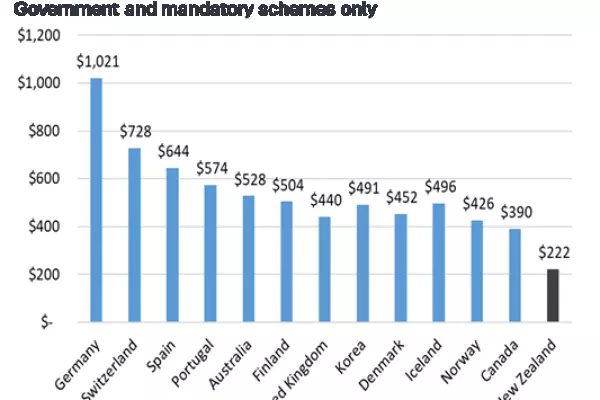ISS Facility Services Australia New Zealand keeps a low profile.
The subsidiary of ISS A/S, a leading facility management services company with more than 350,000 employees in 30 countries, does not appear to have a local communication or marketing team.
It's rarely mentioned in the media and would have low name recognition.
Yet, its NZ arm is a leading provider of cleaning services in our health sector – running contracts with four Te Whatu Ora districts (Bay of Plenty, Southern, Waikato and Capital and Coast).
ISS has been in Aotearoa since 2005, with contracts in health, government, banking professional services, manufacturing and education.
It employs 1,000 staff, two-thirds working in the health sector.
Globally, health is a key sector for ISS. Chief operating officer Liz Turner said it has 50,000 staff delivering everything from engineering to food, orderly and cleaning services in hospital environments. Health represents roughly two-thirds of the company’s revenue in NZ, she said.
The Southern health district revealed it paid ISS an average of $8.1 million a year between 2017 and 2021. Waikato paid an average of $7.6m per year between 2018-22 and the Bay of Plenty district’s contract cost $5.2m between 2018 and 2023.
Difficult years
Despite stable multimillion-dollar contracts with the public sector, ISS NZ has been running a deficit since 2019, including a negative $1.7m result in 2021.
Before that, the company did not appear to be hugely profitable – it turned a $115,000 profit in 2018. However, the NZ subsidiary still managed to pay a $902,000 management fee to its parent company last year, and $1m in 2020.
While ISS NZ’s cost of sales increased from $45.2m in 2020 to $53.1m last year, its revenue from contracts with customers has remained stable over the same period at $50m last year and $49.9m in 2020.
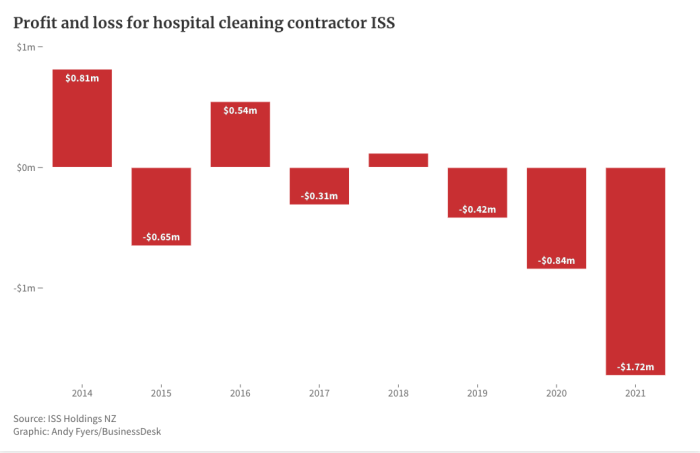 Turner, who admitted not being used to doing media interviews, was taken aback by questions about the company’s financial results.
Turner, who admitted not being used to doing media interviews, was taken aback by questions about the company’s financial results.
She attributed deficits in recent years to a “difficult” transformation of ISS’ NZ operations, starting in 2017, which required a significant investment in talent and updated technology.
Staff shortages
The pandemic added to those challenges, but did not lead to any staff redundancies, she said.
“The pandemic has certainly exacerbated labour shortages across New Zealand. This, coupled with surging requirements and a need for a high degree of flexibility needed by our customers, has placed pressure on the operating margins throughout the pandemic."
The positive impact of investments is starting to show, though. “In 2022, we have operated at moderate profits and are projecting this momentum to continue,” Turner said.
 ISS Facility Services NZ chief operating officer Liz Turner says the company plans to keep growing in this country despite recent challenges. (Image: ISS NZ)
ISS Facility Services NZ chief operating officer Liz Turner says the company plans to keep growing in this country despite recent challenges. (Image: ISS NZ)
ISS has remained fully committed to operating in NZ through challenging times, Turner said. She sees many similarities between this country and Denmark, where ISS was founded and has its headquarters.
“In my view, building a sustainable business in New Zealand requires strong values and a solid reputation, as well as a commitment to building transparency and trust with your customers.
“This approach to business creates an alignment of values, which we see as critical to long-term sustainability and success.”
Pay parity
Several Te Whatu Ora districts, such as Waitaha Canterbury, are doing cleaning in-house rather than contracting out to ISS or competitors like Spotless and the OCS group. But cleaners work under the same core conditions and pay across the board.
After widespread industrial action in 2007, businesses such as ISS contracting with then-district health boards (DHBs) agreed to mirror the pay and core working conditions of those directly employed by DHBs.
This applied mostly to orderlies, food workers and cleaners; parity has yet to be reached for all security guards, laundry workers and service workers in aged care, E tū union health sector organising director Sam Jones said.
This resulted in better pay, allowances, working conditions and job security for cleaners in public hospitals, compared to those employed by ISS to work on other sites.
However, issues arise when cleaners get extra benefits with Te Whatu Ora, such as covid-19 payments or winter payments, and private contractors don’t always follow suit, Jones said.
And during collective bargaining, improvements achieved with Te Whatu Ora might be delayed with contractors.
However, the process with ISS has been “reasonably smooth” and has not ended in dispute, Jones said.
“Contractors say they’re happy to pass on the conditions, but they need the funding from Te Whatu Ora. In some cases, they both point the finger at each other, while a low-paid worker is considering a strike for conditions that their colleague employed at Te Whatu Ora are getting,” Jones said.
“We don't want to get involved in those discussions, but we can’t agree to those conditions not matching up.”
Innovation and expertise
If staffing costs are uniform across the board, what value does ISS add for its health clients?
Turner said ISS enables healthcare professionals and clinicians to focus on their patients’ medical needs.
Health clients value ISS’ commitment to ethical employment, self-delivery of its services, innovation and quality, as well as its ability to manage risks, ensuring continuity of services, Turner said.
A recent example was the implementation of Ultraviolet-C disinfection robots in partnership with a key customer in public health, she said.
“We are able to leverage our global health expertise to meet the demand from our local key account customers for best practice and innovation.”





